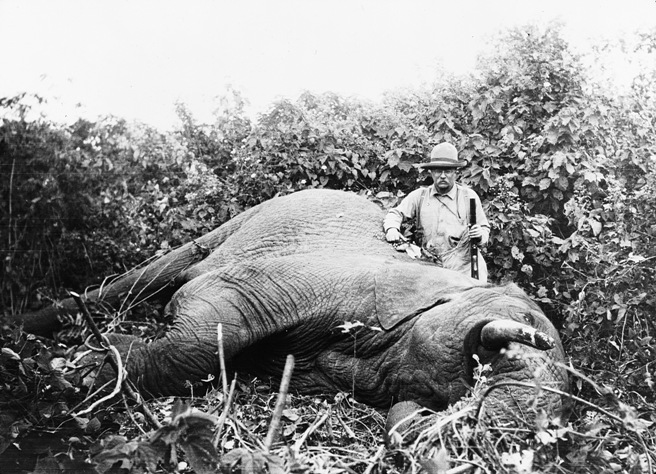“U.S. to lift ban on elephant hunting trophy imports.”
After recently reading up on the magical minds of elephants, I realized that they have memory capacities that exceed those of humans.
I read about the way that elephants are said to “never forget,” the way that they have burials for their dead and can recognize their own reflections. According to Sean Hutchinson, their 10.5 pound brains are said to “encode identification and survival details, imprinting the key data to their memory to be recalled later.”
The Trump administration lifting the poaching ban has huge consequences for the species as a whole that go beyond the scope of what one might think is a single elephant life taken at a time—which is still an unspeakable tragedy, in and of itself.
Elephants travel in herds, and an elephant’s memory develops as they grow older. Most often, the matriarch in charge is older and larger, with greater memory and “wisdom” for survival than the other elephants. Unfortunately, the larger and the older the elephant, the more vulnerable to poaching. This means that the survival skills, memory of areas that were once dangerous to survival, and wisdom are no longer available, putting the entire herd at risk.
In my social work program, we’ve learned about “social dominance theory,” which is a theory or idea that some people have more of a basic drive toward group-based inequality.
This social dominance orientation is viewed as a personality trait; those who score higher are partial to increasing differences between statuses of different groups. Upon what basis, you might ask? Separateness. In high social dominance oriented societies, differences translate to separateness, and inherent within separateness is inequality.
You might be wondering what this has to do with elephants, right?
Well, we live in a high social dominance oriented society, now run by a dominant president, Donald Trump.
America has already seen the Trump administration undermine the value of human life, and similar to our elephant counterparts, we aren’t going to forget it. These fatal decisions are not just contributing to the war on elephants, they’re contributing to the war on humanity and life itself.
But the United States Fish and Wildlife Service tends to disagree.
“Legal, well-regulated sport hunting as part of a sound management program can benefit the conservation of certain species by providing incentives to local communities to conserve the species and by putting much-needed revenue back into conservation.”
In other words, by implementing macro policies that contribute to the extinction of a species, they believe it will encourage the agents involved on smaller levels to feel inspired to prevent the killing.
The controversial, fiscal incentives for those who are influencing macro policy, where most of the power lies (pun intended), powerfully outweigh the altruistic incentives of those working on the ground. It is horrifying to consider, even with a 3-lb human brain with a lesser memory. What, then, must it feel like to the animals who have memories greater than humans, in their 10-lb brains?
I also learned in my graduate program about how global social welfare is possible not only by action, but by the understanding of information.
Feeling overwhelmed by the implications that these decisions have for life as a whole is natural, but don’t let the hardwiring of the body overcome the power of the mind and soul. By informing ourselves, we gain the motivation that we need to become more involved, in whatever way feels right to us. Whether that be donating, writing, advocating, lobbying, or something else. If we allow our biological hardwiring to respond to Trump’s, we are playing the same game.
Breathe and sit with this, get informed, and take action with that information. This is true evolution.
This is my piece, and I will never be done.
Bonus: More than 50 ways to help elephants via The Guardian and more advice from Elephant Journal here, here, and here.
~
Image: Wikimedia Commons
Editor: Catherine Monkman
Copy Editor: Callie Rushton
Social Editor: Waylon Lewis












Read 10 comments and reply